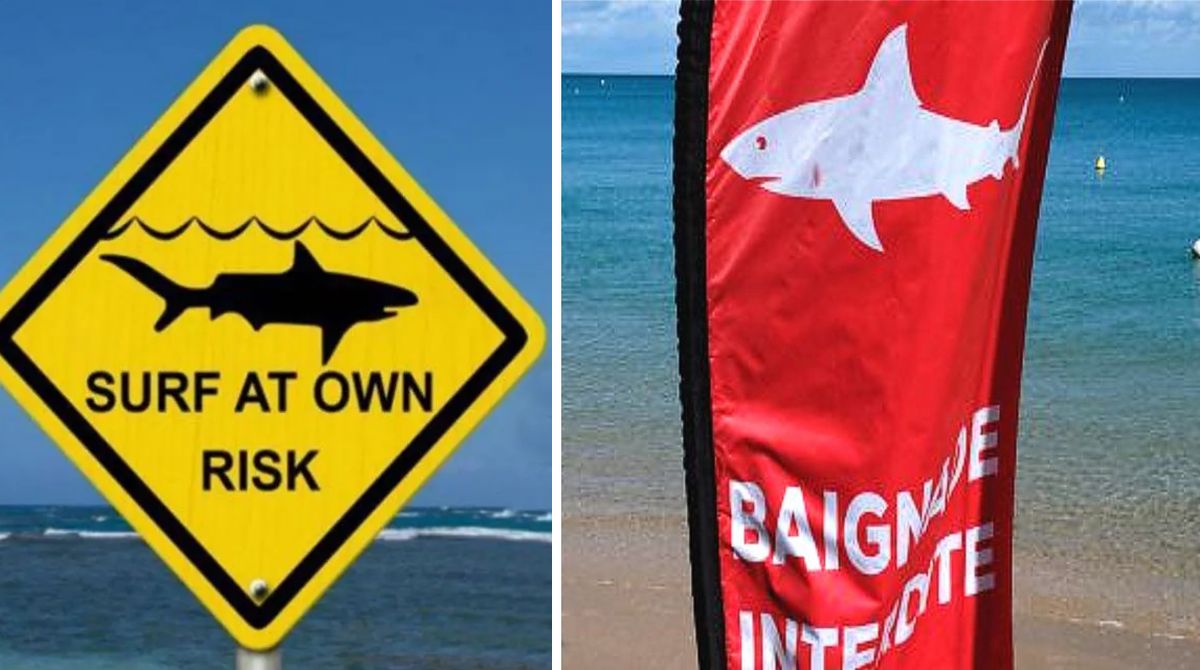At popular beach resorts around the world, the aggressiveness of sharks has begun to grow menacingly. Scientists fear that the situation may become even more frightening for tourists in the future, as there is an objective reason for this phenomenon, ocean scientists reported: the temperature of the surface of the world ocean has reached the highest value in the history of observations.
According to the Copernicus Meteorological Service of the European Union, cited by the British publication Daily Mail, the sea surface temperature reached its highest value — an average of +20.96°C, breaking the previous record of 2016, which was +20.95°C — this indicator includes both cold and warm seas
Rising ocean water temperatures threaten the existence of several fish and coral species. Warming leads to a change in the migration routes of fish, for example, cod, which has to move north in search of cooler waters. Sharks are one of the main fears of tourists – no exception. They also react to changes in water temperature. Yes, experts are sure that these marine predators are becoming more aggressive. “The irritability of sharks would not surprise me at all. Fish are very nervous due to fluctuations in water temperature,” said oceanographer Simon Boxall from the University of Southampton in Great Britain.
As the representative of Copernicus confirmed, the current increase in the temperature of the oceans has set a new record. Record ocean temperatures are linked to the El Nino weather phenomenon, which causes the warming of surface waters in the Pacific Ocean. However, scientists emphasized that the main cause is global warming, which is facilitated by the emission of greenhouse gases, and warned of serious consequences for the climate and the ecosystem.
Last year and this year, several heat waves were registered in the following popular resorts:
- Mediterranean – resorts of Turkey, Italy, Spain, Greece, France, and other countries.
- Gulf of Mexico – Most of the Gulf of Mexico surrounds Mexico, including the coasts of the states of Tamaulipas, Veracruz, Tabasco, Campeche, Yucatan, and Quintana Roo. There are also several states bordering the Gulf of Mexico on the southern coast of the United States. These are the states of Florida, Alabama, Mississippi, Louisiana, and Texas. Cuba: The northwestern coast of Cuba also includes a small part of the Gulf of Mexico.
- The heat also reached the North Atlantic – Iceland, Great Britain, Norway, Ireland, and the Faroe Islands. It has also become warmer in Greenland.
Professor Rowan Sutton, from the University of Reading and the National Center for Atmospheric Sciences, warned that such an extreme event could have devastating consequences both locally and globally: “Ocean warming is a cause for concern. They suggest that we may be experiencing not just a record-breaking extreme event, but a devastating one. And this is not just a local temperature change. This is another wake-up call that calls for the most urgent action to limit future warming and adapt to the major changes unfolding before our eyes.”
How will this affect tourists and beach destinations?
In general, increasing shark aggressiveness and changing ocean temperatures present critical challenges for the tourism sector and the environment.
- First, it is a direct threat to the safety of tourists. The more aggressive behavior of marine predators may well increase the likelihood of attacks on vacationers, especially near beach resorts where popular activities include swimming and surfing.
- Secondly, reducing the list of safe beach destinations for recreation. An increase in the number of shark attacks can scare away tourists and negatively affect the flow of tourists in areas with a high risk of shark attacks.

